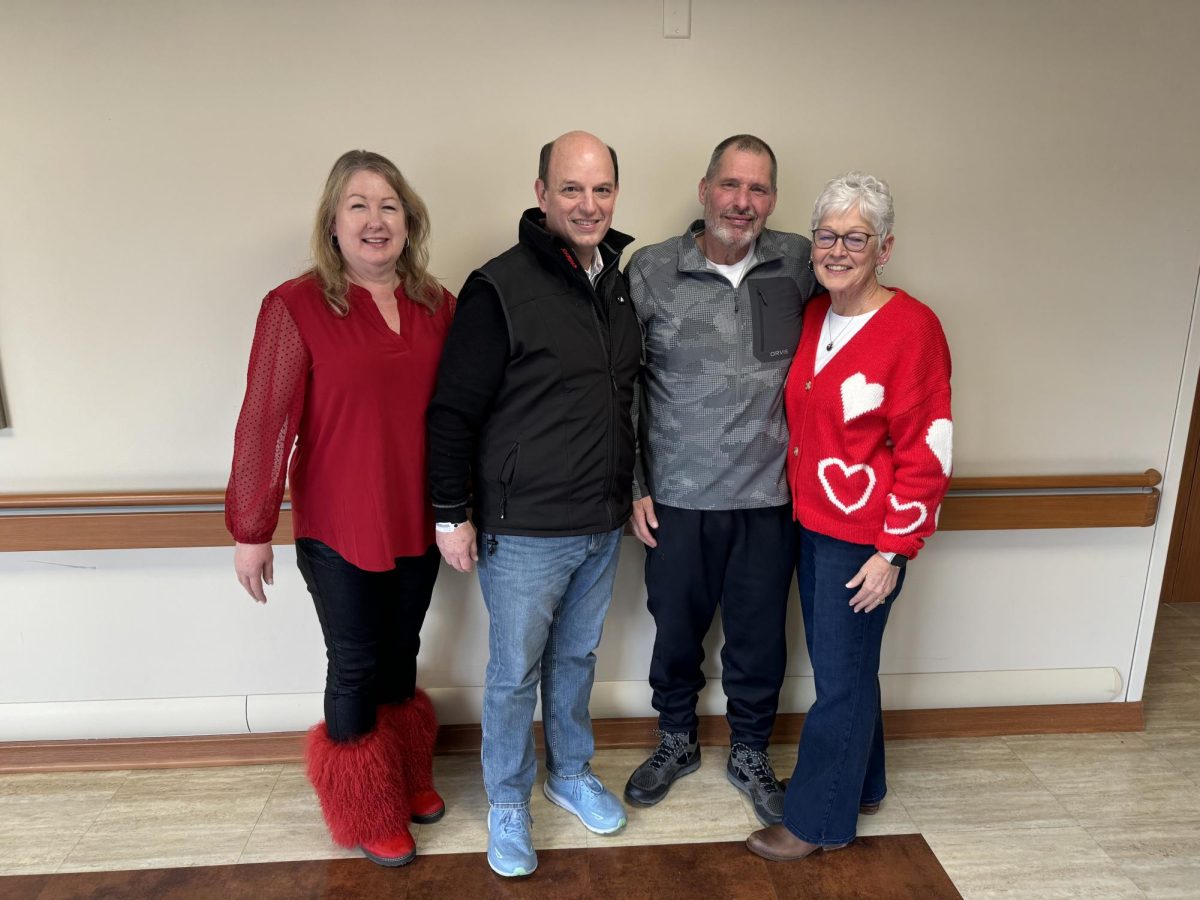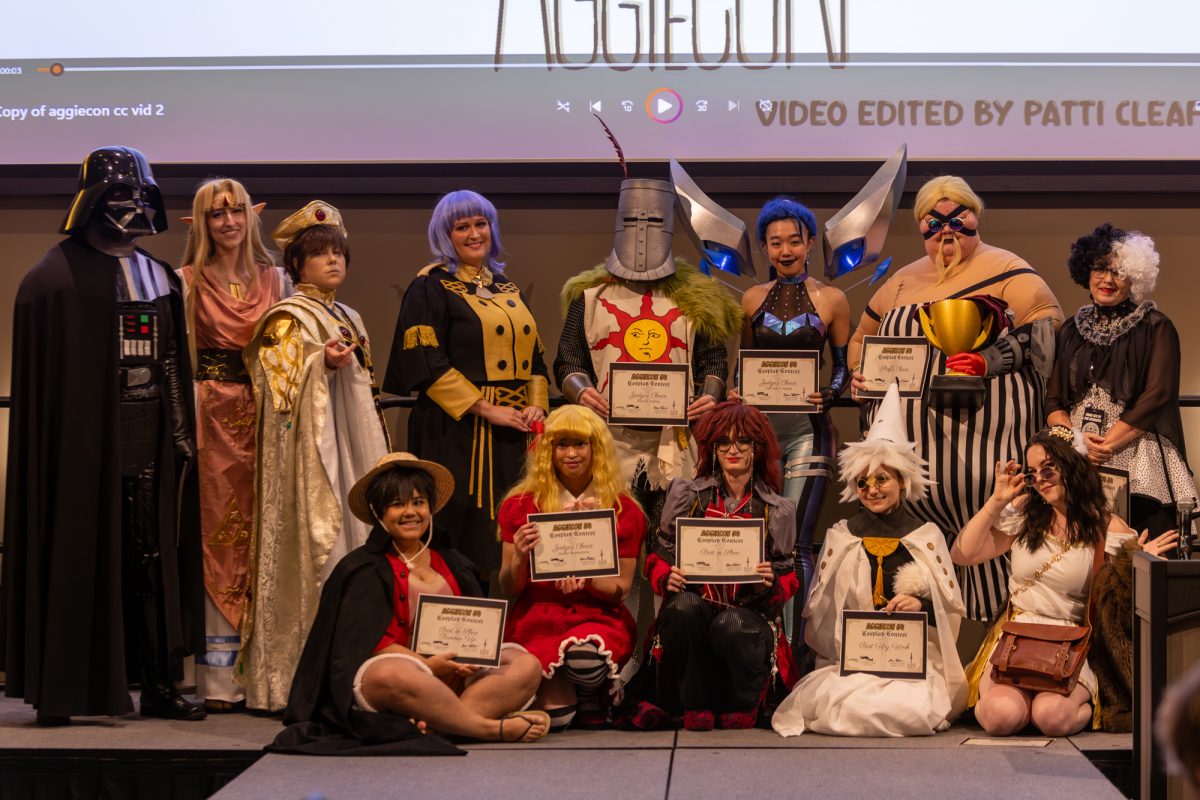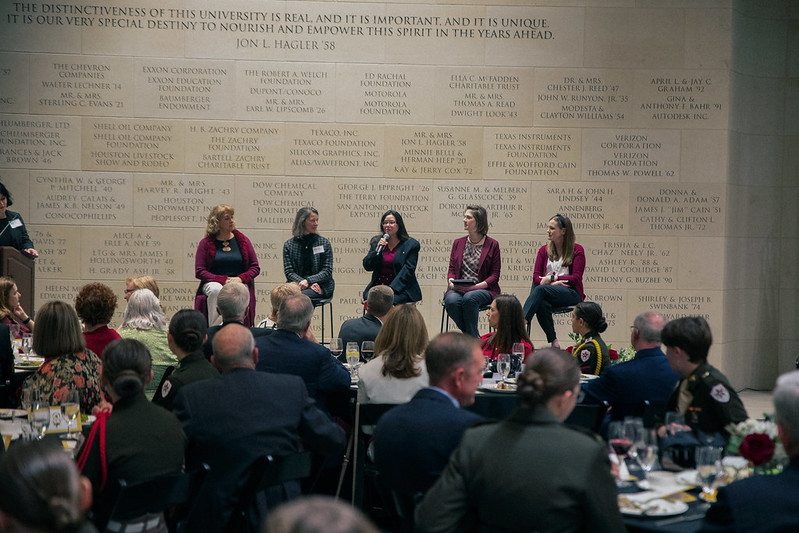On Monday, Feb. 27, students and faculty gathered at the Memorial Student Center, or MSC, for the Carter-Larke Black History and Education Lecture ‘Celebration of Black Excellence: Yesterday, Today & Forever.’
Since 2017, the Texas A&M School of Education and Human Development has annually held the Carter-Larke Black History and Education Lecture which serves in honor of professors Norvella Carter and Patricia Larke who were both black women professors at A&M in the Department of Teaching, Learning and Culture, orTLAC, but are now retired. The first few phases of the lecture consisted of opening remarks, a choir performance by Voices of Praise, A&M’s gospel choir, and award handouts to notable educators.
Animal science senior Dorion Criner, Voices of Praise president, said this event helped him learn more about the history and influence of Black leaders at A&M. The panel provided perspectives from educators not only at A&M, but other schools as well.
“It’s important for me to attend this event to learn a little bit more about the history here at A&M,” Criner said. “It’s fun to learn new things and my favorite part about the panel is the diversity of people. I remember [someone on the panel] from Prairie View [A&M University], that’s kind of like a sister school, and [it all] just [shows] different perspectives.”
There were three awards given out during the lecture that honored multiple individuals on their achievements and contributions to the education field at A&M and other institutions as well. Professor Jamilia Blake, Ph.D, an A&M faculty member, received a research award during the lecture. She dedicated her award to professors Carter and Larke, as they are the women who have helped guide her to success.
“Thank you so much for this award, it means so much to me Pat [Larke] and Norvella [Carter],” Blake said. “[I] looked up to you when I first started and having two black professors that were women to kind of guide [me] and give that nod when you knew you were doing so well. [I’m] eternally grateful to have something that’s a symbol of all the work that you’ve done and the foundation that you’ve laid. You walked so I could run. I would not have been successful here at Texas A&M without the two of you.”
Larke attended this event, held partly in her honor, along with Carter, and said she was, and still is, greatly moved by the conversations that continue to occur as time goes on.
“I’m just overwhelmed with the event today,” Larke said. “To know that, given the issues that we have in today’s society, they still continue to talk about black history and the legacy of what we’ve done, which is multicultural education and urban education.”
Criner said lectures like these are essential to learning Black history on a deeper level. This panel, or lecture, which incorporated information on Black history, was, and is, important to attend to learn about Black history so certain students and individuals can learn where they come from.
“[It’s important] to know where you come from,” Criner said. “If you know where you come from, then you know where you’re going.”










